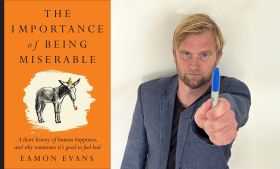With Accessory – the memoir I co-wrote with convicted drug dealer and former beauty queen Felicia Djamirze – due out this July and published by Affirm Press, I’ve been reflecting on what it really takes to help someone tell their story. Ghostwriting as a profession is timely, growing and in high demand. But doing it well is an art form of its own.
Not everyone who has something important to say knows how to say it. Even many professional writers lack the long-form craft skills required to shape a narrative arc, build character and write around a strong thematic spine that ties everything back to a singular central idea – over the course of 50,000 or 100,000 words. Then there’s background historical research, collating images and seeking permissions, and crafting a timely hook that resonates with readers and publishers alike.






